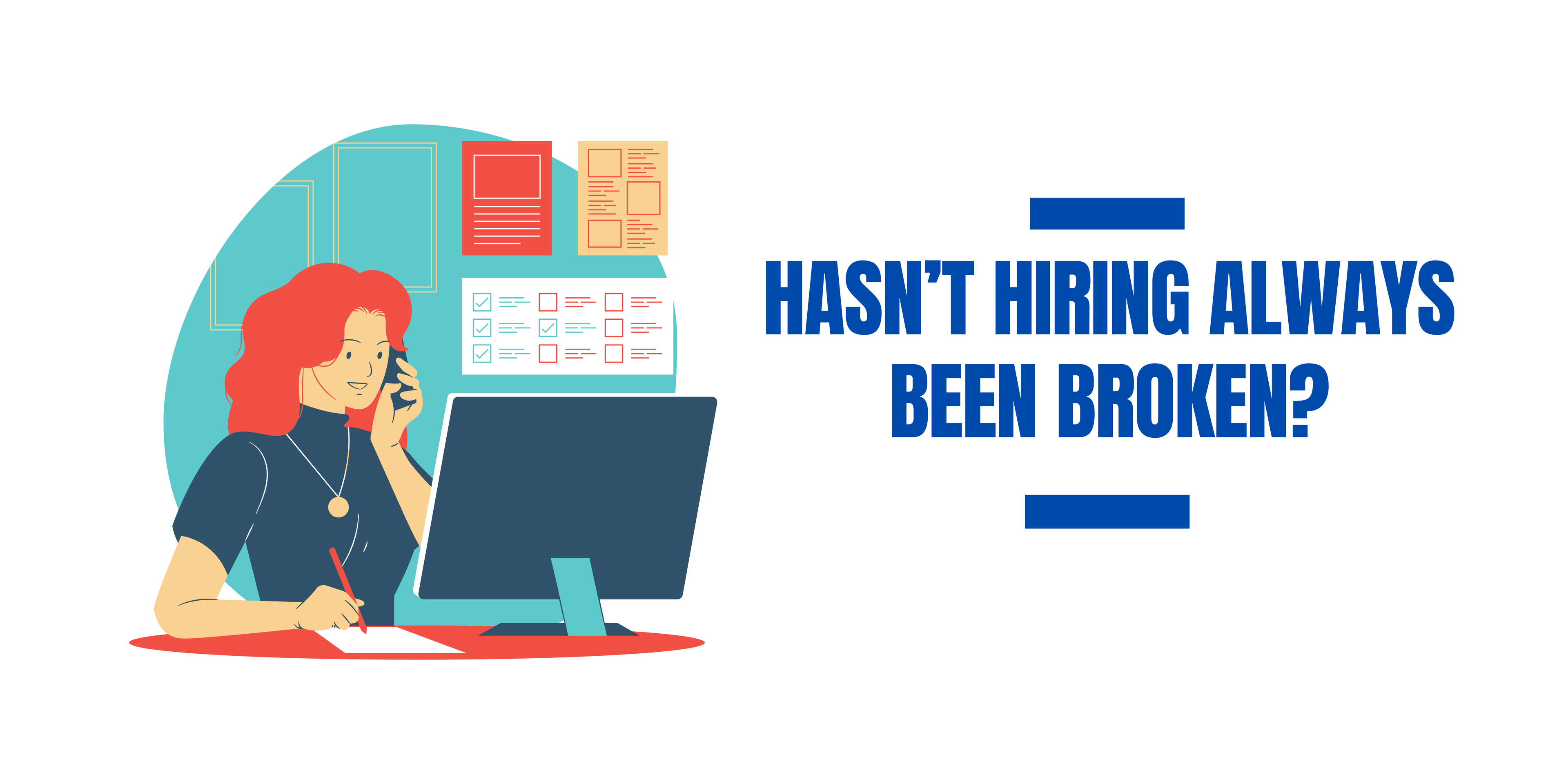Hasn’t hiring always been broken?
Overview
Four years ago I joined a small startup called Jobr, marketed as the “Tinder for Jobs”. You would sign up, upload your resume, and then start swiping on jobs that were recommended to you. Swipe right to apply and swipe left to pass. I started as a machine learning engineer tasked with improving the number of jobs that user’s applied to as it directly affected how much money we made from external job boards and partners.
This proved to be challenging for a number of reasons. One was that people loved not to upload resumes and expect finely tuned well-recommended jobs. They would complain in the app store reviews something like I’m studying for a computational linguistics masters degree, why are you showing me barista jobs? Another reason was that users were either highly selective or not selective at all. Many of our users, given the chance to treat their job hunt like their Tinder selections, would swipe right continuously, applying to thousands of jobs. We called them swipe bombers as they ironically generated us most of our revenue but were terrible quality. No one wanted a candidate that also applied to two thousand other jobs in the city.
This eventually got Jobr in trouble. By reducing the quality of our applications, the swipe bombers flooded our job partners (who paid us per application) with low-quality results. One partner ended up reducing their budget with us by 70% the next month after they realized how much quality declined. Application quality and quantity were inversely related, and there wasn’t much that we could do. We would try to recommend enough good quality applications so that the job partners wouldn’t shut us off, but still try to maximize the quantity of applications to increase revenue.
This kind of quality vs. quantity relationship is very representative of the broader job market. Many jobs never suffer from a lack of volume but rather from quality applicants. But what exactly is a “quality” applicant? This was a question that perplexed us at Jobr.
In some cases it was easy. If you were a truck driver applying to a truck driver job, that was definitely quality. But what if you were a truck driver applying for an administrative assistant job, well, that’s tricky. Technically admin assistant is an entry-level job, but quality could be dependent on if the job receives other past administrative assistants or not.
I now understand most job quality measurements to be complete bullshit no matter how many new trendy hiring/recruiting startups tout how AI will revolutionize a company’s hiring process. At Jobr, for example, our job partners couldn’t agree on quality measurements. One partner told us our percentage of quality applicants was 30% one month while another would say it was 15% for the same applicants.
But let’s go even further down the funnel. Let’s say that a company has a great recruiter that can pretty accurately measure who will pass an interview from the resume screen. You go through the interview process, but you didn’t sleep too well last night, maybe you’re distracted cause your kid got suspended from school for spitting in someone’s face, and your interviewer decides that day they want to question you on your knowledge of neural networks even though their last six months were spent making the database GDPR compliant. And then now suddenly your application has been marked as unqualified.
But let’s say for fun that you pass an interview and your company is measuring high-quality performers using a new shiny HR analytics software. It’s now your quarterly review, and you feel like your manager just kind of forgot about you. You think that your manager gives everyone on your team completely objective performance reviews, but your manager does smile a bit more with your co-worker. Yesterday you swear you heard them spend half of their one on one just talking about their shenanigans last weekend out at the bars. Could it be possible that your manager has given a review that constituted more of how much they liked or disliked someone rather than how well they performed?! Could it also be that maybe your manager’s own performance at their job is more dependent on how much that director likes them rather than revenue added in order to not cut your team’s budget next quarter in half?
We can drill this down all we want, but at the end of the day, I think maybe the phrase the hiring process is broken is prevalent for a reason. In that, every step of the funnel is fallible under human biases that ultimately affect many things outside of our control. Whether AI can really go through and measure the personality and nuances of human beings’ reasoning in the future and understand our motivations and inner workings of corporations to correctly solve for the perfect system, I’m not entirely sure of it.
So next time if you’re wondering why you didn’t get that job, maybe blame it on human nature.
